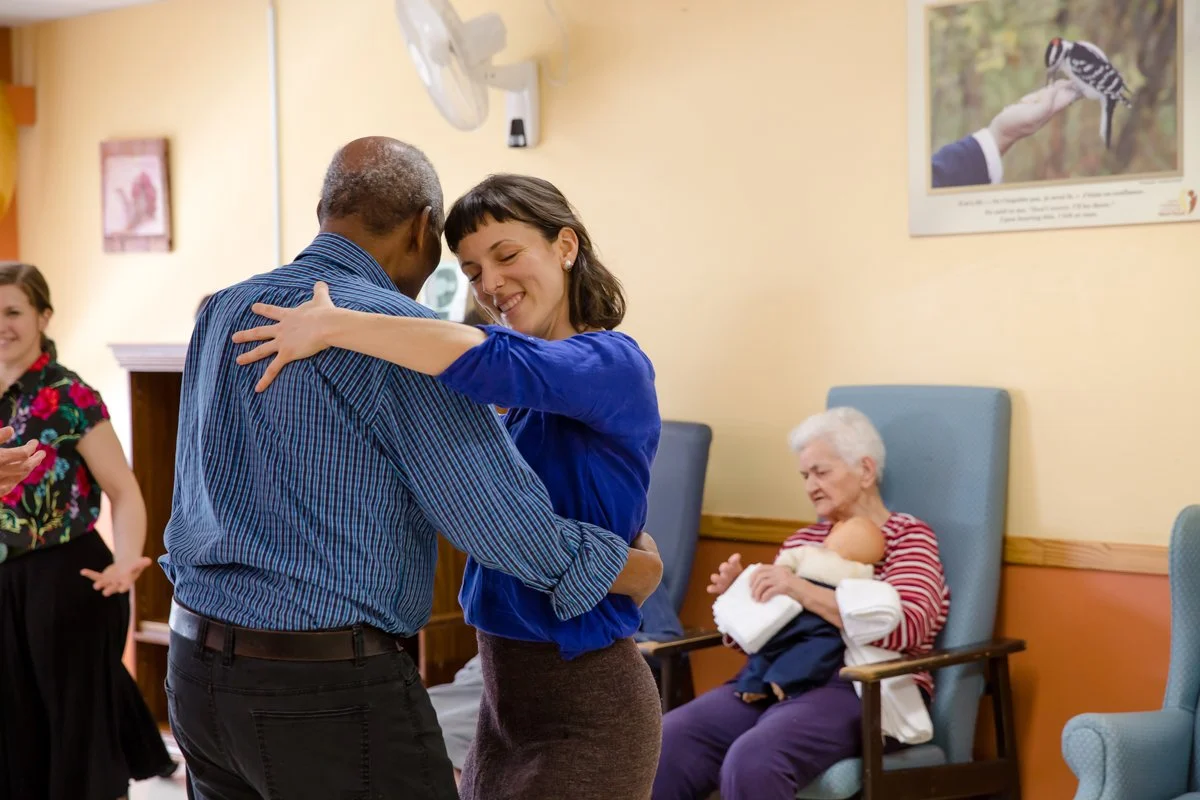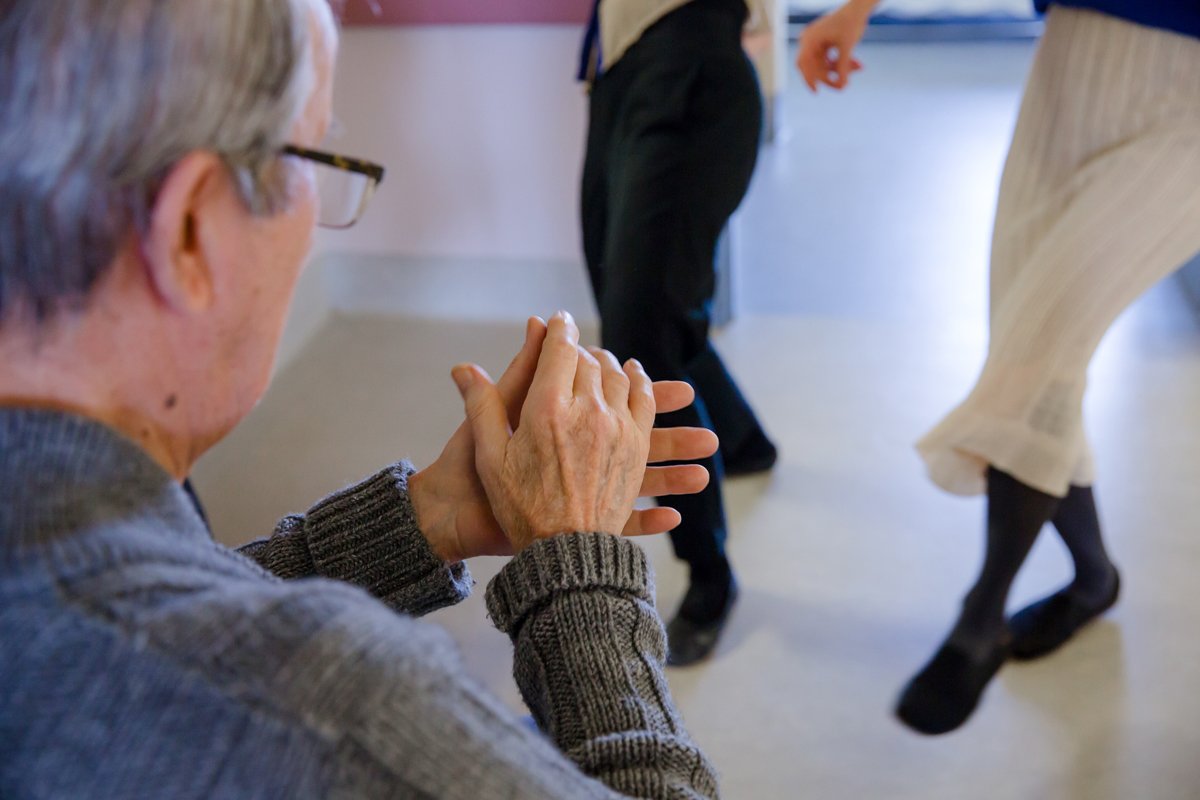
Exploring alternative ways of being together
and new possibilities for inclusion
Since 2019, researcher Stefanie Blain-Moraes, Canada Research Chair in Consciousness and Personhood Technologies at McGill University, and Ariane Boulet, founder of Mouvement de passage, have been collaborating on research projects focused on embodied memory. In their first study in 2021, the team explored the neurophysiological foundations of human interaction to shed light on how dance and music help people living with neurocognitive disorders form meaningful connections with those around them. A second project is currently underway to further this research and ultimately help reduce loneliness and its impacts among CHSLD residents.
The concept of embodied memory supports the idea that the body is a vital site for the construction and expression of identity, even as cognitive abilities decline. It challenges the deficit-based view of neurocognitive disorders and presents those affected as active participants rather than passive recipients of care. It opens the door to exploring alternative ways of being together and new possibilities for inclusion.
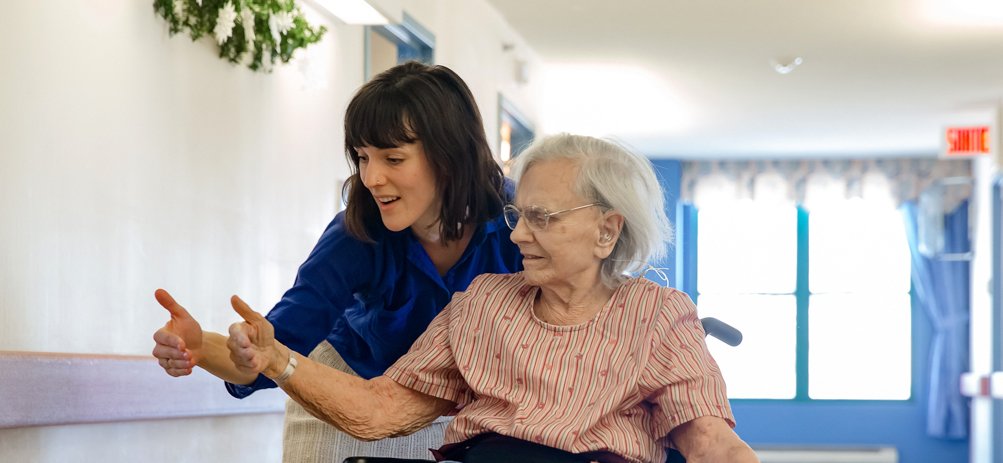
the body has its own memory
*
the body has its own memory *
In 2019, researcher Stefanie Blain-Moraes led the research project “Mouvement de passage: Creating connections through movement among persons with dementia,” along with her Consciousness and Personhood Technologies research chair team at McGill University and the Biosignal Interaction and Personhood Technology Lab. Ariane Boulet contributed to the project by offering weekly dance and music sessions, adapted from Mouvement de passage’s approach, to a group of participants living with Alzheimer’s disease. They were invited to move solo, in pairs and as a group. The sessions gave them the opportunity to explore their capacity for movement, reconnect with their senses and engage with others, while simultaneously learning to trust the group.
“At the start of each new session, when we introduced ourselves to the participants, many didn’t remember us. But as soon as the warm-up began, the residents immediately knew what to do. The way they reacted to the music and interacted with each other had evolved from the previous week. They each seemed to pick up right where they left off. From analyzing the video footage and participants’ physiological data collected with sensors, we could see that the body has its own memory.”
Stefanie Blain-Moraes, Researcher
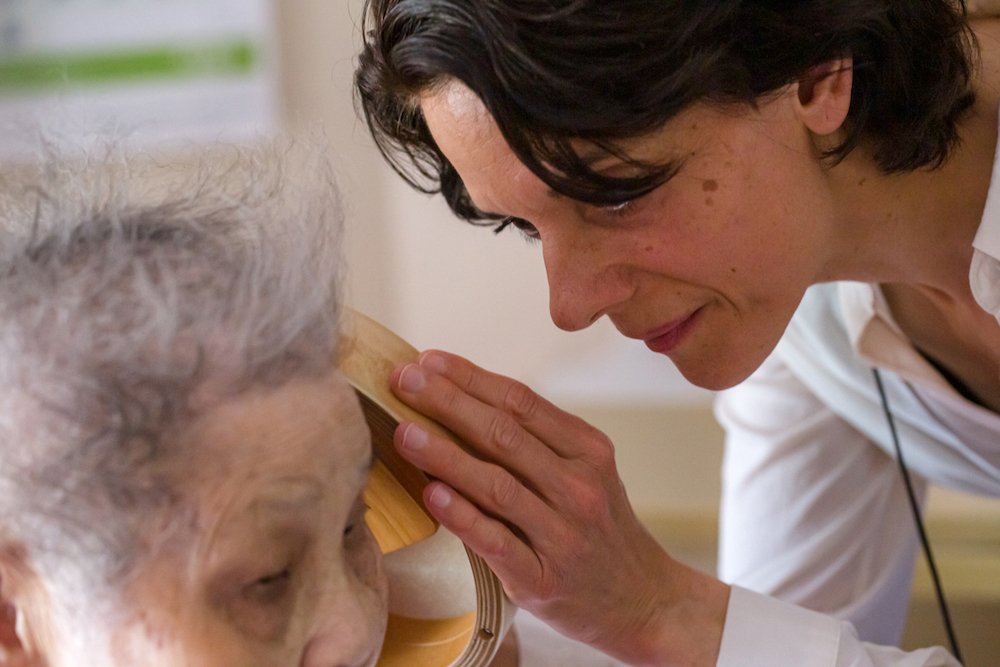
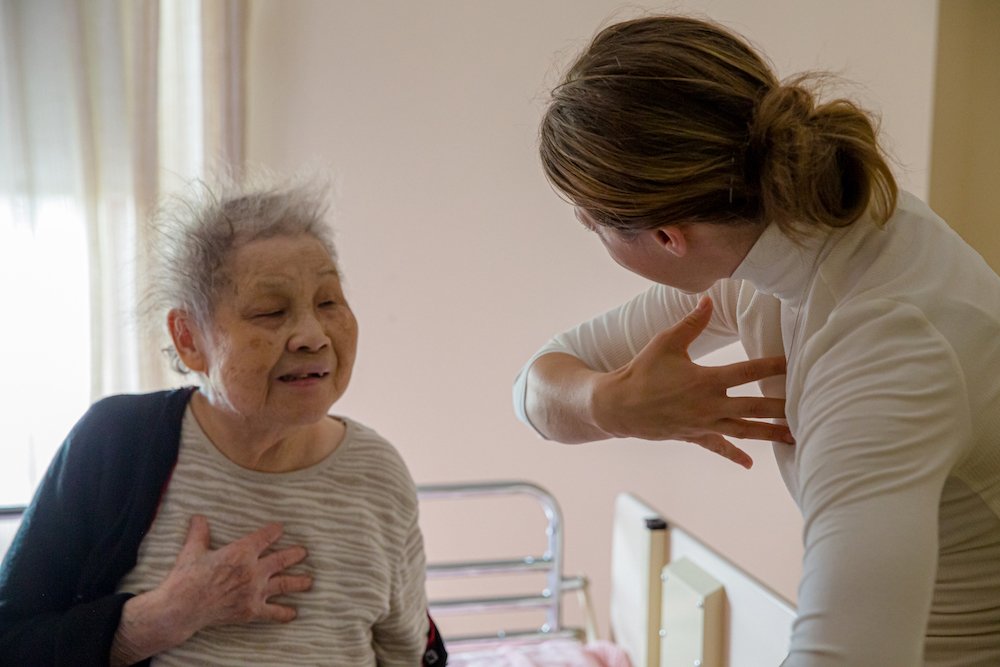
tracing embodied memory
*
tracing embodied memory *
In 2024, the teams from the Biosignal Interaction and Personhood Technology Lab at McGill University and Mouvement de passage launched a new research project, “Tracing embodied memory: a pilot study for persons living with dementia.” The field research took place over eight weeks, during which a musician and a dancer were paired with a CHSLD resident living with episodic memory loss, that is, someone who was unable to recall the dancer’s visit from a previous session. The participants’ skin conductance, body temperature and heart rate were measured during each session using a finger sensor.
The objective of the study was to develop and test a measurement framework to capture the lasting effects of Mouvement de passage on the embodied memory of people living with dementia symptoms, in order to:
• Better understand the neurophysiological bases of human interaction and consciousness
• Translate this understanding into technologies that improve quality of life for people with limited communication abilities
The results of this second study will be published in 2026.
Research project 2024-2025
Research team | Stefanie Blain-Moraes, Paige Whitehead, Biosignal Interaction and Personhood Technology Lab, Chaire de recherche Consciousness and Personhood Technologies de l’Université McGill
Dancers | Constance Aubry, Ariane Boulet, Isabelle Poirier, Julie Tymchuk
Musicians | Olivier Lamarre et Marie Vallée
Support team | CHSLD Bayview
Research project 2019-2021
Research team | Stefanie Blain-Moraes, Biosignal Interaction and Personhood Technology Lab, Chaire de recherche Consciousness and Personhood Technologies de l’Université McGill
Dancers | Ariane Boulet, Joannie Douville
Musicians | Marie Vallée
Support team | AGI (Alzheimer Group Inc)
Photos | Emily Gan
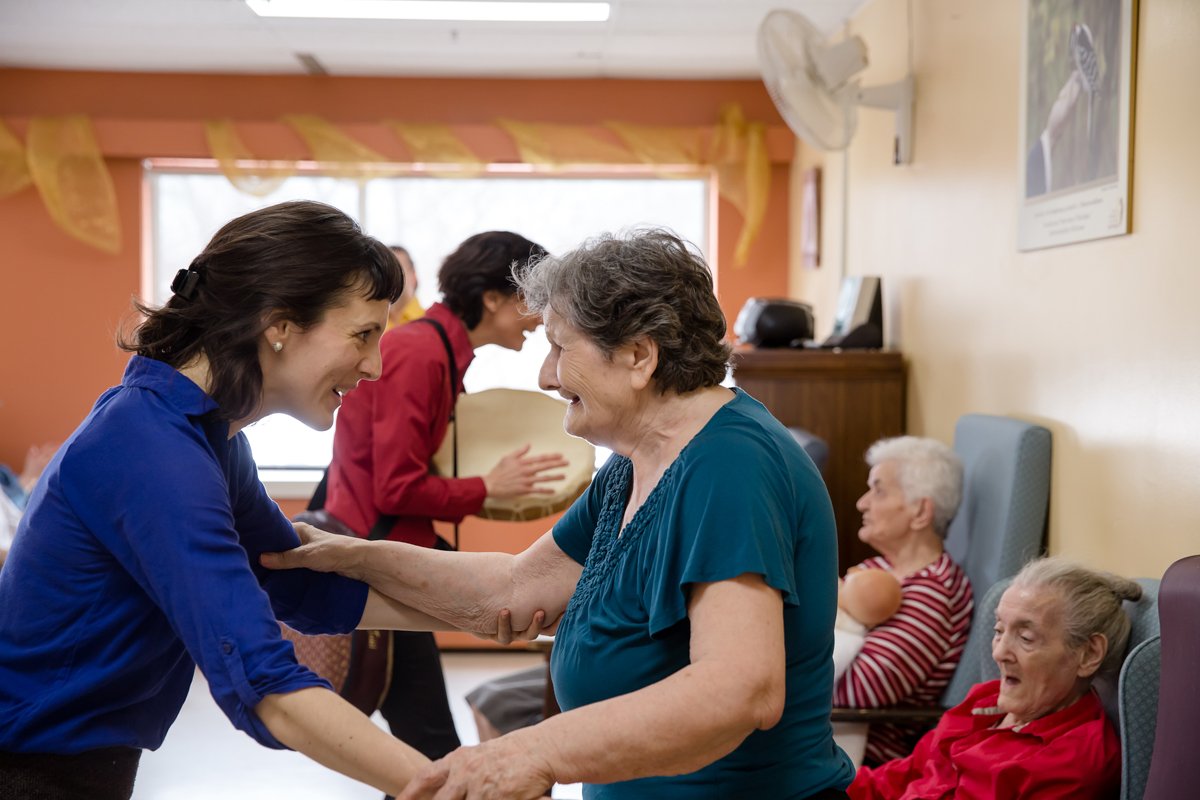
Learn more about :
-
Click HERE to learn more about our visits to CHSLDs: our approach, how the visits work and our team’s expertise.
-
Click HERE to learn more about our project’s positive impacts on CHSLD residents and their loved ones, care staff and the arts community.
-
Click HERE to read stories and reflections on our practice from our project’s artists.
